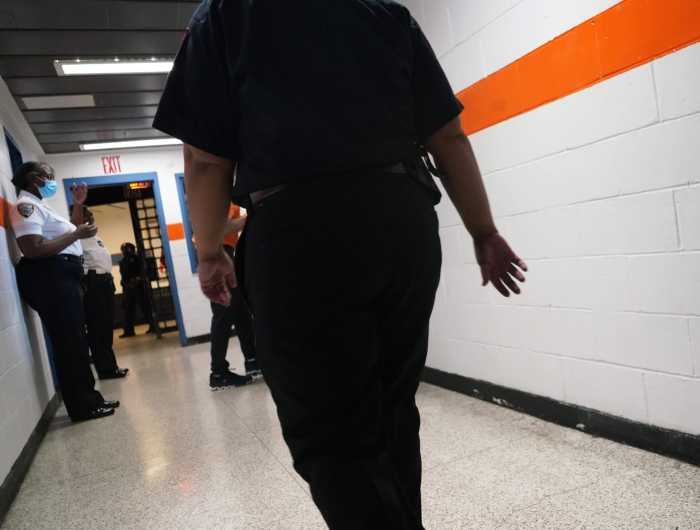At the end of July, Sen. Hillary Rodham Clinton broadened her alliance with the Democratic Leadership Council, a group that maneuvers to play a major role in selecting the party’s presidential nominee, by accepting a leadership role in the organization.
The DLC’s claim to fame was Bill Clinton, the first Democrat since Franklin Delano Roosevelt to be re-elected president, but someone who left the party in disarray. The DLC’s reputation as a positive force pushing the party to hew to centrist principles was blemished by the presidential campaigns of Al Gore and John Kerry, DLC-supported candidates who didn’t inspire or run coherent campaigns.
Nonetheless, the DLC convention last week in Columbus, Ohio, a key swing state, was a star-studded occasion. Sen. Evan Bayh of Indiana, Iowa Gov. Tom Vilsack and Virginia Gov. Mark Warner—all mentioned as potential Democratic contenders in 2008—attended.
Sen. Clinton’s speech on July 26, which sketched out a utopian vision of the United States in 2020—she talked of 2020 vision, I kid you not—in the shorter term called for unity as the party approaches 2008, a peculiar request from a likely candidate so far in advance of an election. In fact, it was her insistence on the theme of unity—to the detriment of many tough issues that need discussion—that is the nub of the controversy that followed her remarks.
Indeed, the request for unity will be ignored. As she called for a consensus, the AFL-CIO was breaking up. The defectors’ major complaint: the AFL-CIO spent too much time and money on supporting Democrats, and too little on organizing new union members. The most aggressive unions believe that the Democratic Party isn’t helping people who live paycheck to paycheck.
Rather than answering that complaint, Clinton said that in her dream it was possible to increase spending for healthcare, upgrade the military and homeland security and still balance the budget. Of course, she didn’t mention taxes, but the Republicans will. Perhaps this dose of realism is unduly harsh. Clinton will lead the DLC American Dream Initiative, and she was describing her American Dream—harmony and shared values. She briefly mentioned globalization and job loss in the United States. Stricter regulation of out-sourcing investments should protect the environment and foreign workers, she said. Health-care costs, she added, are driving service jobs out of the country because U.S. jobs have become too costly.
Yet, her articulation of the American Dream offered little to soothe the abiding fear among Americans that they will lose their job, and be forced into a new line of work at lower pay. That may prove a liability for her, especially given that free trade and declining wages seem destined to continue their emergence as the most divisive issues in the economic lives of Americans.
Both political parties are divided internally between supporters of free trade and skeptics. The individuals who have lost well-paying manufacturing jobs and ended up working in Home Depot pose a thorny political riddle for politicians. Pres. George W. Bush had to use pork barrel projects to buy Republican votes to get the recent Central American Free Trade Agreement, or CAFTA, through Congress. Sen. Clinton could have won friends by calling for an open conversation on this issue, but for a generation the DLC has made free trade part of the Democratic orthodoxy. Yet even Republicans are not united about the idea, and a creative position on the issue could win Republican votes over to the Democratic column. A plea for Democratic unity on the question runs the risk of closing ranks behind the unpopular side of the issue.
In fact, much of the criticism of Clinton’s speech came from people who object to the impact of free trade on wages. Clinton would do better to listen to both sides and make a virtue of the debate.
Healthy political parties are filled with contentious factions. Look at the Republican Party, where moderates, libertarians, budget balancers and religious conservatives do battle with each other. Corporate interests in the GOP have major differences with local main street businesses, and both would rather press an economic than a moral agenda. Democrats should demonstrate that important issues can be addressed by the party. A premature plea for unity is more likely to substitute nice words for substance. At this very early stage in the presidential sweepstakes, the party should demonstrate a flexibility to seriously weigh policy alternatives.
A plea for unity favors those who would placate rather than persuade the swing and moderate conservative voters. And this is the major complaint against the DLC. It uses soothing words when people are asking for political conviction.
The other great debate that can’t be stopped by calls for unity concerns military spending and the war in Iraq. Bush identified a widespread fear of attack by weapons of mass destruction among Americans and correctly assumed that the country would be willing to go to war to after September 11. But the conflict that he brought to Iraq has been a disaster, and doubts about Bush’s leadership are growing. When Clinton speaks of spending more money to give soldiers the resources they need, is she really responding to the public’s fears? It might be better to criticize the war for encouraging terrorism by making terrorists look heroic to angry young people around the globe. It doesn’t make sense to call for unity around the foreign policy status quo when the public is becoming increasingly disenchanted with the war.
The Democrats are the party of peace and rank-and-file Democrats oppose the war. I remain skeptical that voters will elect a Democratic hawk. Voters simply won’t believe an opponent of the Vietnam War is a born-again hawk. Surely John Kerry illustrates this point.
Clinton has found a defensible position for supporting reproductive health while trying to reduce the number of abortions—but is she willing to stand firm on that position, or will her commitment to choice erode? And can she find a defensible position on gay marriage? I don’t think the public will believe her if she says she is against it. This is the problem of insincerity on which Kerry already foundered.
The public has a hard time believing Democrats. Their doubts are heightened by Republican propaganda. Democrats can still expect to have their candor and integrity questioned. Whether it is Bill Clinton’s evasive answers to questions about Monica Lewinsky or the image of flip-flopping that dogged John Kerry, Democrats must overcome the notion that they are too cute by half in parsing their words. The public will never buy into the benefits of a government it will get from a Democrat if they don’t believe the candidate.
It would be healthier for the nation and for the Democratic Party, if Hillary Rodham Clinton and other leading Democrats were to invite debate on the issues of the day as a prelude to a firm staking out of positions for 2008. Rather than artificial pleas for unity, Clinton should be identified with the search for solutions to policy dilemmas facing the nation.
gaycitynews.com
































